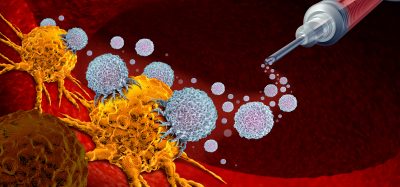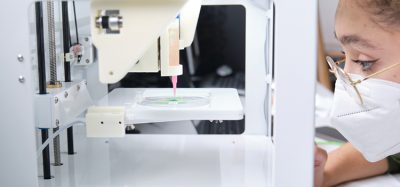Drug candidate offers hope of vocal improvement for ADNP syndrome
Posted: 16 November 2018 | Drug Target Review | No comments yet
Scientists have uncovered a promising drug candidate that appears to normalise the vocal communication mechanism deficiencies experienced in genetic disorder ADNP.

Activity-dependent neuroprotective protein (ADNP) syndrome is a rare genetic condition that causes developmental delays, intellectual disability and autism spectrum disorder symptoms in thousands of children worldwide. There is no known remedy for the disorder.
Fortunately, scientists at Tel Aviv University (TAU) have identified a drug candidate – CP201, also known as NAP – that may help to improve the vocal communication abilities that are underdeveloped in such patients. The research found that vocal impediments and disrupted neural connectivity in ADNP-deficient mice were normalised following daily injections and intranasal administrations of CP201.
This decisive research was led by Prof Illana Gozes, the Lily and Avraham Gildor Chair for the Investigation of Growth Factors and head of the Elton Laboratory for Molecular Neuroendocrinology at TAU’s Sackler Faculty of Medicine, in collaboration with Prof Anne McKinney of McGill University and her research group and Dr Vlasta Korenková of the BIOCEV Institute of Biotechnology. TAU doctoral students Gal Hacohen-Kleiman, Shlomo Sragovich, Gidon Karmon, Iris Grigg and Dr Metsada Pasmanik-Chor conducted the study research.
ADNP syndrome is caused by truncating mutations of the associated protein, which is essential for brain formation.
Commenting on how this research could positively impact the lives of children with the disease, Prof Gozes who discovered the ADNP gene nearly 20 years ago, said: “Children with ADNP syndrome suffer from intellectual disability, delayed language acquisition and speech impediments.
“Many children are never able to speak at all.
“We developed a mouse model of ADNP deficiency that offered a closer look at the ADNP-deficient brain. We discovered that vocal communication deficiencies are in fact connected to synaptic pathology, and that we could normalise this by injecting the mouse model with daily NAP treatments or administering intranasal doses to the mouse. Specific gene regulation substantially improved on most of the parameters that we tested, which is great news for the future of ADNP and autism research.”
Prof Gozes‘ extensive research into the disease led to the development of CP201, an important nerve-cell-protecting snippet of ADNP that enhances its activity. It increases nerve cell plasticity that improves memory and cognition through interaction with microtubule end-binding proteins.
“We have seen CP201’s positive effects in Alzheimer’s and other neurodegenerative diseases,” says Prof Gozes. “We have now found that vocal communication impediments in ADNP-deficient mice were successfully normalised.
“The CP201 systemic injections or intranasal daily applications in non-suckling mice affected global changes in brain plasticity, substantially improving developmental milestones.”
The new study was conducted over the course of two years. The researchers used cognitive behavioural tests and gene expression analysis to assess the developmental milestones of 72 ADNP-deficient mice. They also applied ultrasonic vocalisation analysis to 28 ADNP-deficient mice and compared these with the results of 50 “normal” mice.
Ramot, Tel Aviv University’s technology transfer arm, licensed NAP (CP201) to Coronis Neuroscience for development. The U.S. Food and Drug Administration (FDA) has since granted CP201 Orphan Drug status for the treatment of ADNP syndrome in the United States.
According to Prof Gozes, the current study paves the way for a clinical trial. “NAP (CP201) has demonstrated brain target engagement and great potential for treating social, motor and vocal communication impediments in future intellectual disabilities/autism-oriented clinical trials,” she says.
Coronis Neurosciences has just completed a pre-IND (investigational new drug programme) meeting with the FDA with positive outcomes and a road map to successful IND submission for CP201 in the ADNP syndrome. The IND programme is the means by which a pharmaceutical company obtains permission to start human clinical trials.
The study was published in the Journal of Clinical Investigation.
Related topics
Disease Research, Drug Discovery, Protein
Related conditions
ADNP syndrome
Related organisations
McGill University, Tel Aviv University







